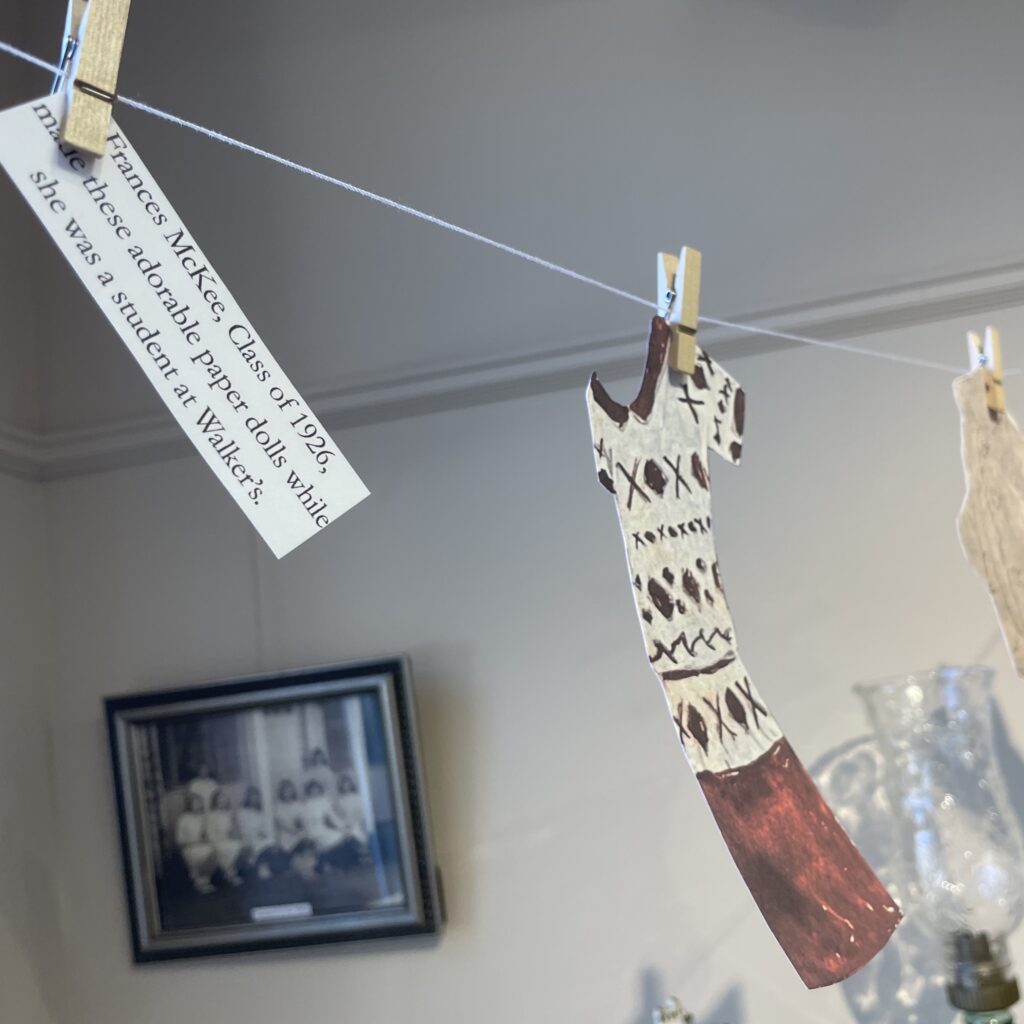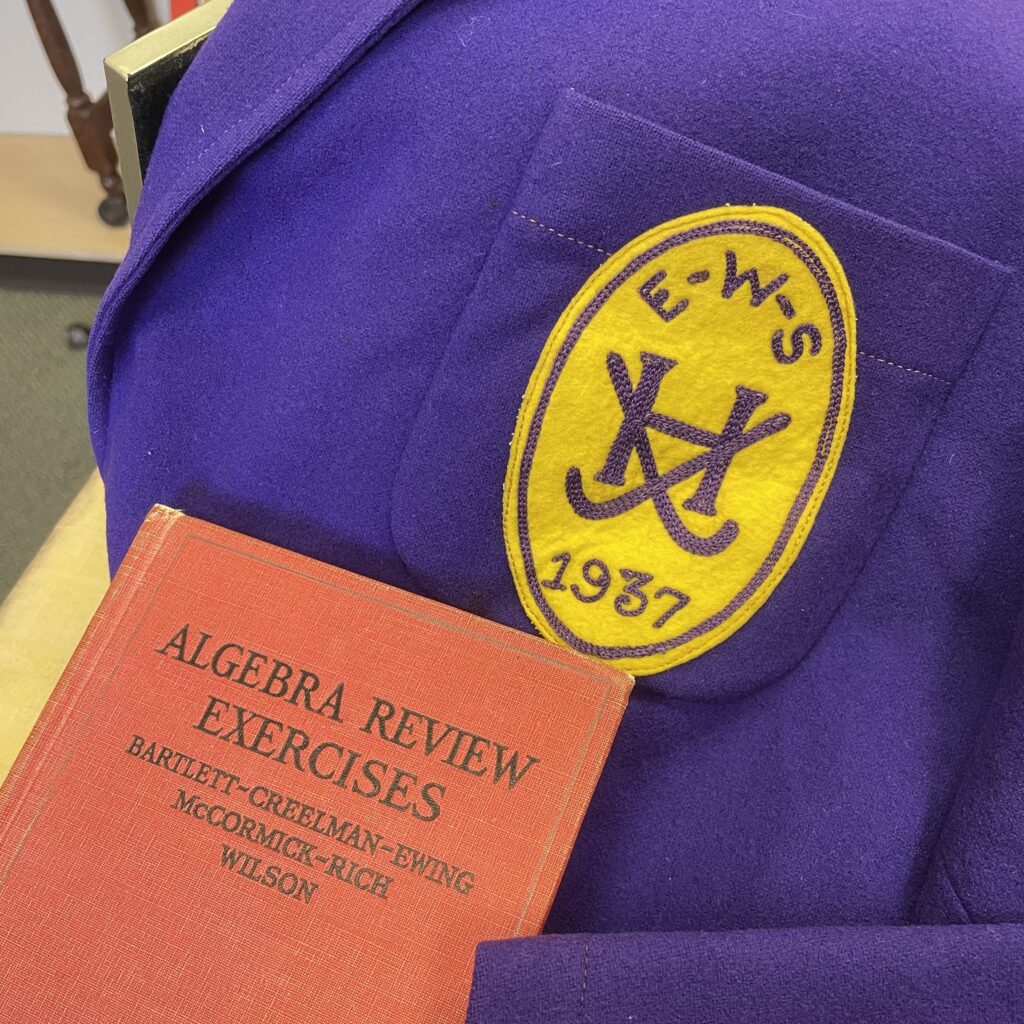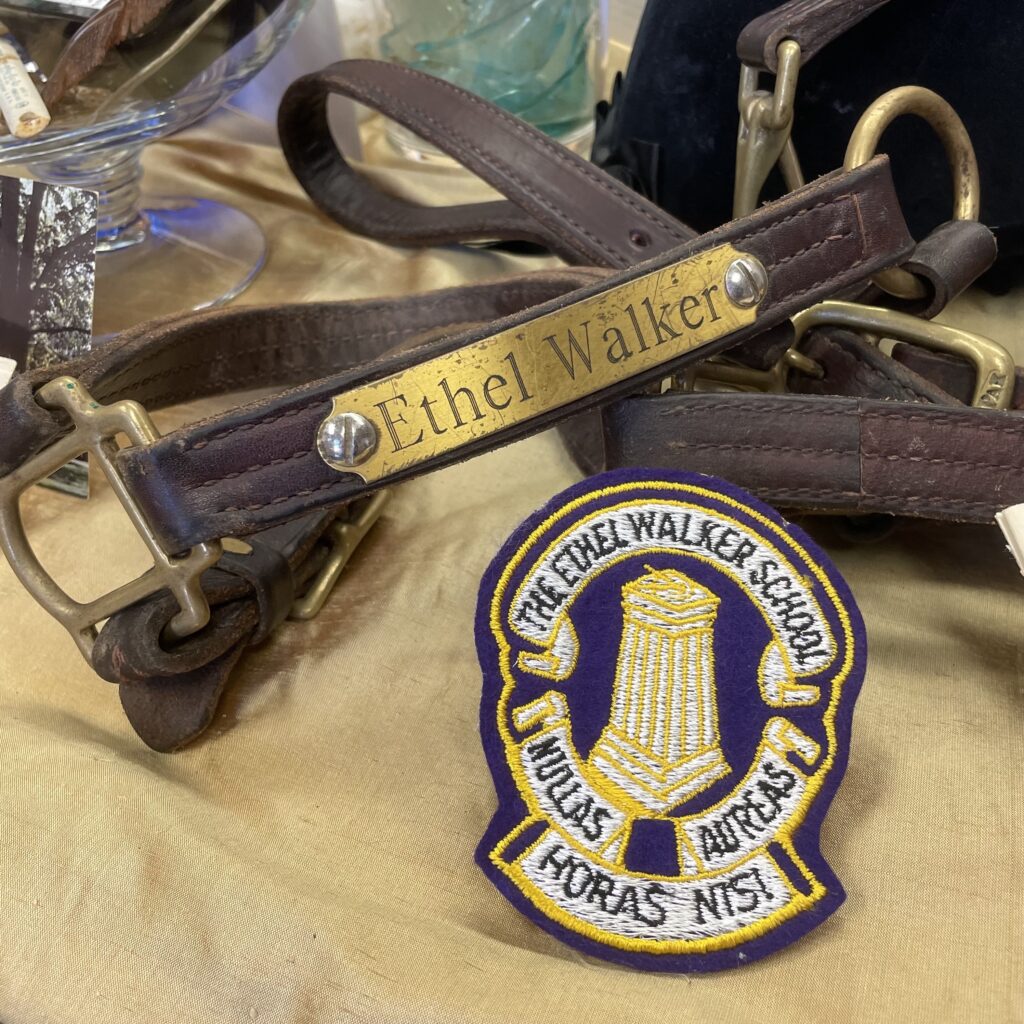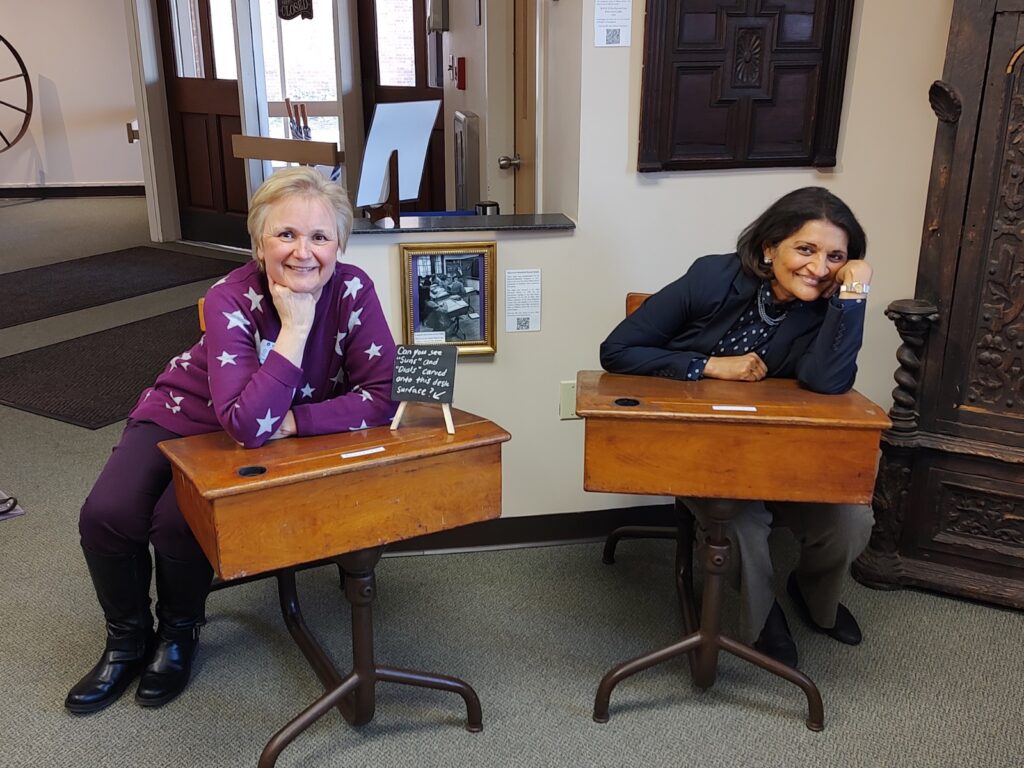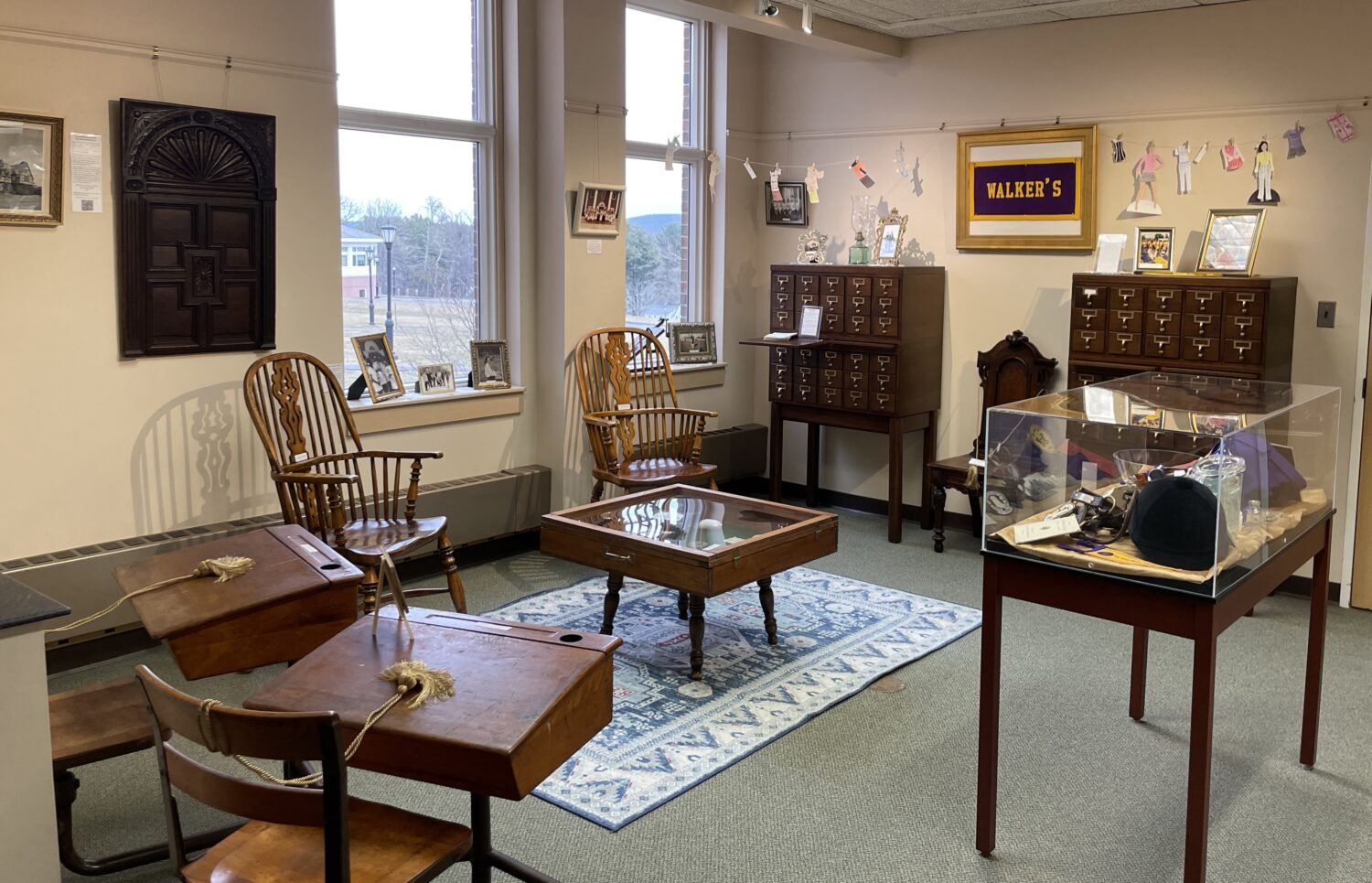
The Ethel Walker School Interactive Museum, located in Bell Library, is now open. This museum is unique because it is a “Please Touch” rather than a “Do Not Touch” space. Although some artifacts are inaccessible in their display cases, there are special zones throughout the museum that are dedicated to community interaction. Clear signage indicates which areas are which.
The purpose for the tactile exhibitions, according to archivist Kim Thacker, is two-fold:
“Because most museums do not encourage touching the artifacts on display, museums in general are not known as friendly spaces to anyone who has vision impairments. I want our museum to be fully accessible — at least as much as the physical space and safety and practicality will allow — to everyone. That is why anyone who visits will be able to touch items in the museum as well as be conducted through the space via audio tour. No one should feel as if displays of their history are inaccessible to them.
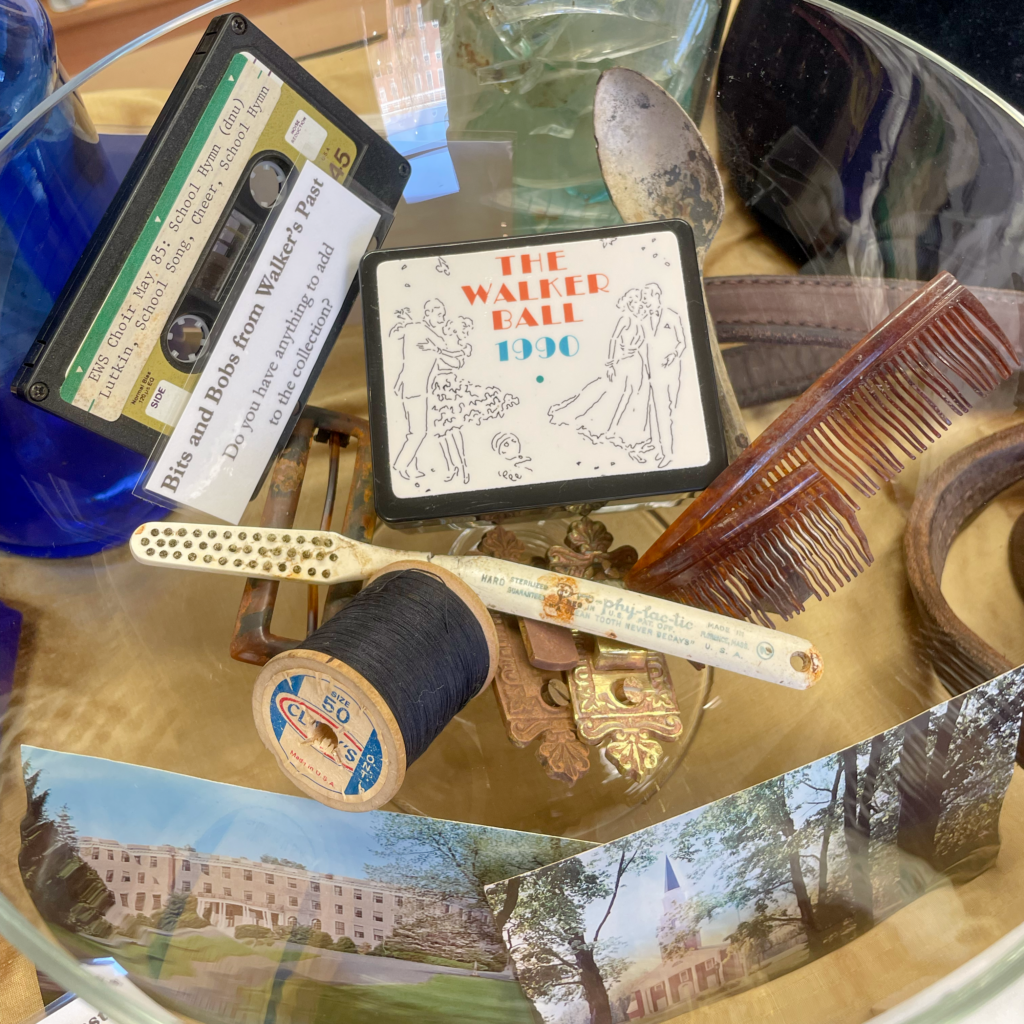
“In addition, I believe that history really comes to life for people when they can touch the things they read about. They become invested in the process of research and discovery. This is invaluable to an institution like Walker’s, which places such emphasis on understanding principles of research, even in the sixth grade. I took my sixth grade humanities class mudlarking in the Farmington River so they could find old bottles and pieces of pretty porcelain that they could then research. It was an incredible experience for the students and for me. When you combine artifacts and archives, all kinds of magic can happen.”
This topic of combining artifacts and archives in experiential learning, is one which Thacker will address as a speaker at the biannual New England Archivists Conference in Portsmouth, NH this spring. The museum at Walker’s, and its contents, will feature in her address to the gathered archivists.
Some of the museum’s contents include artifacts that Thacker, and several colleagues who expressed interest in accompanying her, found in a woodland dump site on Walker’s grounds. These items relate to the School’s early history and include ink bottles, fountain pen nibs, jewelry, a pocket watch, a ceramic toothbrush, bottles of hand and face cream, porcelain and stoneware dishes, and much more. Several of the items that Thacker and others have found are on display in the museum.
Other items that are on display can be found in old library card catalog cabinets on the museum’s east wall. While Thacker has kept one drawer filled with cards from the cataloging system and has included an explanation of how the system worked, half of the rest of the drawers contain copies of photos from throughout the School’s century-plus history. Each photo is labeled, if only with the date. Visiting alumnae are encouraged to add what they know about the photos that pertain to the years they were at Walker’s by means of sticky note and pencil. The other half of the drawers contain impressions in white clay of permanent features of campus, such as building plaques or unique molding. Thacker’s 7th grade classes created these impressions, and her 6th grade class made riddles and poems that accompany the impressions in their drawers and that can help those who examine the impressions to find their origins.
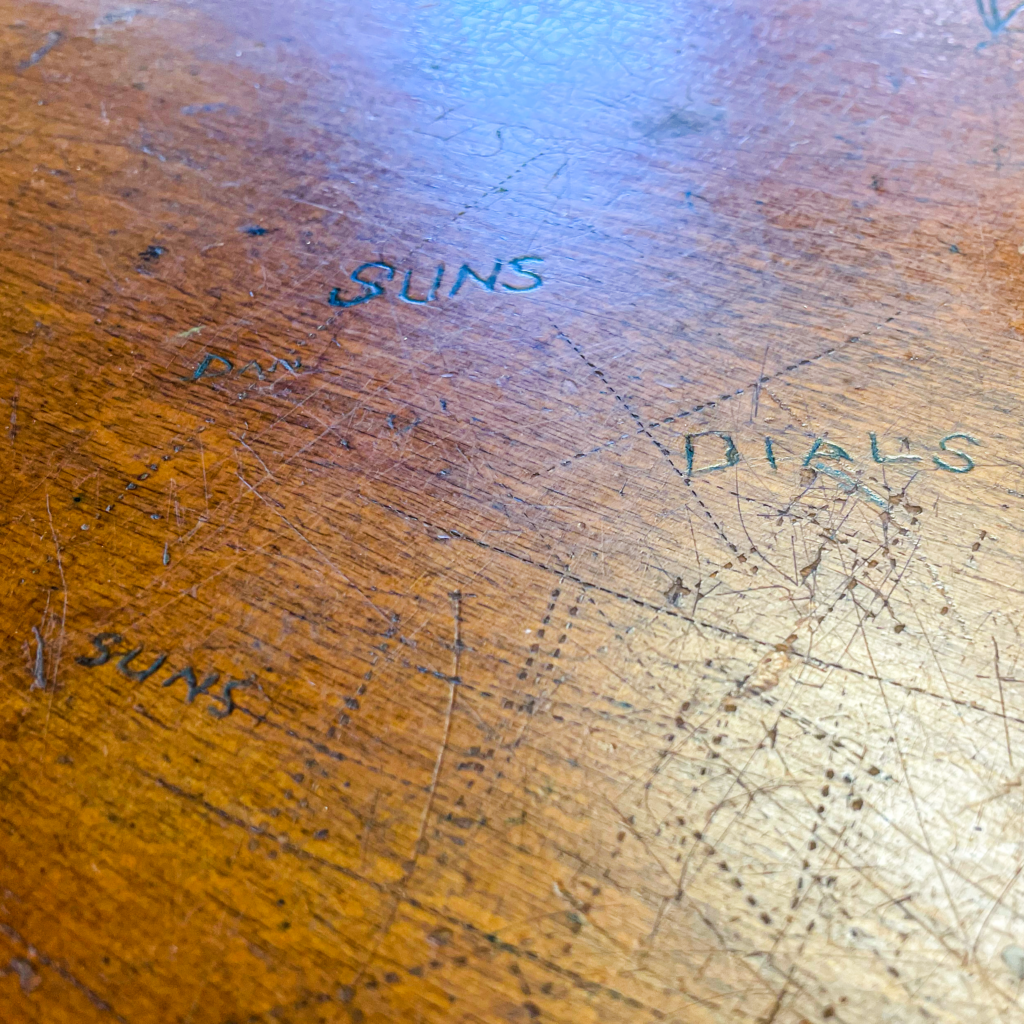
There are yearbooks to peruse, a typewriter to tap on, alumnae-authored books to read, a mid-18th century grandfather clock to admire, paper dolls to dress, and plenty more to see and touch. Two of Thacker’s favorite items are a pair of Heywood-Wakefield desks, manufactured in 1917, which was when Miss Walker’s School for Girls moved from Lakewood, New Jersey, to Simsbury and became The Ethel Walker School. Walker’s donated these desks to the Avon Historical Society in 1976 for the opening of the Pinegrove Schoolhouse, which coincided with the country’s bicentennial. Earlier this winter, Avon Historical Society President Terri Wilson, who was a Spanish teacher at Walker’s in 1983 and is a proud Dial, re-donated these desks to Walker’s. Although she was not involved in the historical society in the ’70s, Wilson recognized the desks as having come from Walker’s because students carved “Suns” and “Dials” into the tops. Wilson has since returned to Walker’s to see the desks on display in the museum and to chat with Thacker and Head of School Dr. Meera Viswanathan. The three foresee many opportunities to work together in the future.
The Ethel Walker School Interactive Museum is open to community members who wish to visit. Students, faculty, staff, and administrators are free to enter the museum during regular library hours. Other community members can schedule a tour by emailing archivist Kim Thacker at kthacker@ethelwalker.org. The museum will be open during Reunion 2023.
